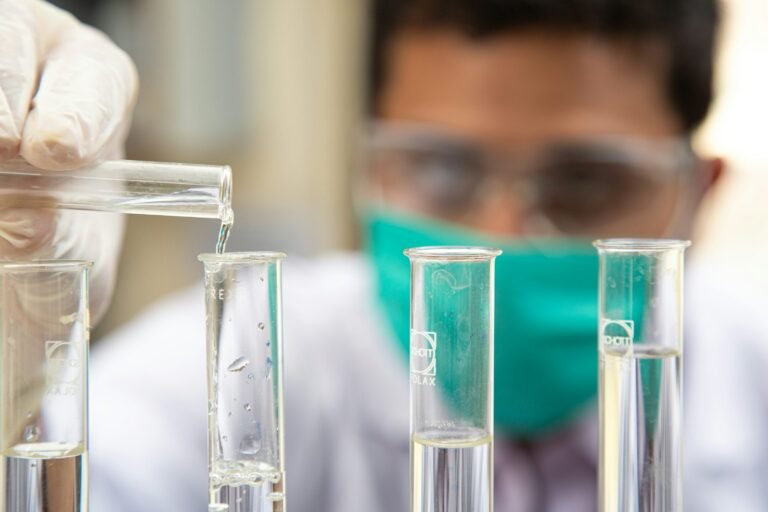When UK researchers begin working with peptides, one of the most common safety questions is: Can peptides cause cancer? It’s a fair concern — any compound that affects cell growth or repair naturally raises questions about tumour biology.
This guide reviews what current research shows, how peptide mechanisms vary, and what UK researchers should know about safety before sourcing peptides for laboratory use.
How Peptides Work
Peptides are short amino acid chains that act as cellular messengers, regulating processes such as:
- Tissue repair and regeneration
- Collagen and extracellular matrix production
- Growth factor release and hormone signalling
- Immune system modulation
Because some peptides influence cell proliferation, researchers ask whether this could extend to cancer cell growth.
Do Peptides Directly Cause Cancer?
There is no evidence that research-grade peptides directly cause cancer.
- Not mutagenic: Peptides do not damage DNA or introduce mutations, the root cause of cancer.
- Pathway-specific: Most act on defined receptors rather than indiscriminately stimulating growth.
- Short half-life: Many peptides are broken down quickly, limiting prolonged activity.
That said, peptides that increase growth factors (e.g., IGF-1, GH secretagogues) may accelerate the growth of an existing tumour if one is already present. This is a matter of amplification — not initiation.
Research Context Matters
Peptides are not medicines; they are investigational compounds for research use only. Their impact on cancer risk depends on:
- The specific peptide and its mechanism (growth-promoting vs immunomodulatory)
- Dose and frequency used in experiments
- Duration of exposure in research models
- Pre-existing cell abnormalities in the system being studied
Importantly, some peptides are even being studied for anti-cancer potential. For example:
- Thymosin Alpha-1 – investigated for immune resilience and adjunctive cancer therapies
- LL-37 – an antimicrobial peptide with research into tumour microenvironment modulation
Ensuring Peptide Safety in UK Research
Safety begins with quality and purity. Impure or degraded peptides increase experimental risk and skew safety data. A reliable UK supplier should provide:
- GMP-grade manufacturing
- Independent third-party purity and identity testing
- Certificates of Analysis (CoA)
- Cold-chain shipping to preserve integrity
- Clear “research use only” labelling
Why Bluewell Is a Trusted Partner
At Bluewell, all peptides are:
- Manufactured in GMP-certified facilities
- Independently verified for >99% purity
- Shipped under strict temperature control
- Delivered with full documentation and technical support
This ensures that UK researchers can focus on the science, with confidence in compound quality and reliability.
The Bottom Line
Peptides do not cause cancer. The key consideration is that growth-promoting peptides could, in theory, accelerate pre-existing tumour growth. Other classes of peptides are being studied for their protective or immunomodulatory roles in oncology.
For UK researchers, the takeaway is clear:
- Source only high-purity compounds
- Follow rigorous safety protocols
- Interpret results within each peptide’s specific biological context
Disclaimer: All peptides supplied by Bluewell are for laboratory research use only. They are not intended for human consumption, medical use, or veterinary applications.


